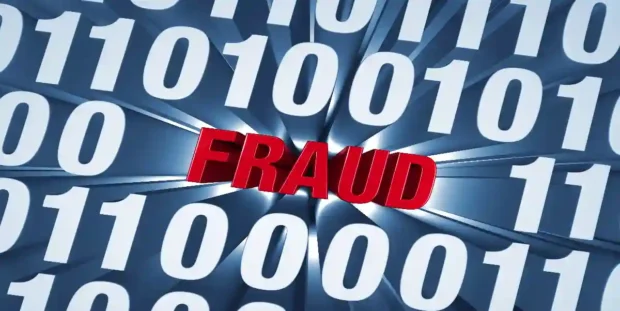Introduction to the Sable Offshore Class Action Lawsuit

The Sable Offshore class action lawsuit seeks to represent purchasers or acquirers of Sable Offshore Corp. (NYSE: SOC) publicly traded securities between May 19, 2025 and June 3, 2025, inclusive (the “Class Period”) and/or pursuant and/or traceable to Sable Offshore’s registration statement issued in connection with Sable Offshore’s May 21, 2025 secondary public offering (“SPO”).
Captioned Johnson v. Sable Offshore Corp., No. 25-cv-06869 (C.D. Cal.), the Sable Offshore class action lawsuit charges Sable Offshore and certain of Sable Offshore’s top executives and underwriters of the SPO with violations of the Securities Act of 1933 and/or the Securities Exchange Act of 1934.
If you suffered substantial losses and wish to serve as lead plaintiff of the Sable Offshore class action lawsuit, or just have general questions about you rights as a shareholder, please contact attorney Timothy L. Miles of the Law Offices of Timothy L. Miles, at no cost, by calling 855/846-6529 or via e-mail at tmiles@timmileslaw.com.
Lead plaintiff motions for the Sable Offshore class action lawsuit must be filed with the court no later than September 26, 2025.
Please see the various investor resources below for an additional wealth of information on securities class actions.
Investor Hub: Additional Resouces
Emerging Trends in Securities Litigation
Understanding Securities Fraud Class Action Lawsuits
Securities fraud class action lawsuits represent a significant legal mechanism for investors who have suffered financial losses due to corporate malfeasance. These lawsuits, such as the Sable Offshore lawsuit, typically arise when a company or its executives engage in deceptive practices that mislead investors about the company’s financial health or prospect.
The goal of such litigation is to hold the perpetrators accountable and secure compensation for the affected investors. Securities fraud encompasses a range of activities, including insider trading, false financial statements, and misleading disclosures, all of which can severely impact market integrity and investor confidence.
In a class action context, a group of investors collectively brings the lawsuit against the defendant, which could be a corporation or its executives. This collective approach is particularly powerful in the securities realm because it allows individual investors, who might not have the resources to pursue litigation on their own, to band together and seek justice.
The class action mechanism ensures that the legal process is efficient and that the interests of all affected investors are represented.
The complexity of securities fraud class action lawsuits requires plaintiffs to navigate a labyrinth of legal standards and procedural hurdles. One of the most significant challenges is surviving a motion to dismiss, a legal maneuver by the defendants to have the case thrown out before it reaches trial.
Understanding the nuances of the Sable Offshore lawsuit is crucial for any stakeholder involved, as it sets the stage for the strategic decisions that will follow. In the case of the Sable Offshore class action lawsuit, these elements come into sharp focus, highlighting the importance of a well-crafted legal strategy.

Allegations in the Sable Offshore Class Action Lawsuit
Sable Offshore operates as an independent oil and gas company. According to the Sable Offshore class action lawsuit, on or about May 21, 2025, Sable Offshore conducted its SPO, issuing 10 million shares of its common stock at the offering price of $29.50 per share for proceeds of $295 million to Sable Offshore.
The Sable Offshore class action lawsuit alleges that defendants throughout the Class Period and in the SPO’s offering documents represented that Sable Offshore had restarted oil production off the coast of California when it had not.
The Sable Offshore class action lawsuit further alleges that on May 23, 2025, Eleni Kounalakis, the Lieutenant Governor of California and chair of the California State Lands Commission wrote a letter to Sable Offshore’s Vice President of Environmental & Government Affairs, Steve Rusch, stating that a May 19, 2025 Sable Offshore press release “appears to mischaracterize the nature of recent activities, causing significant public confusion and raising questions regarding Sable’s intentions.
Your press release also implies that Sable has restarted operations at the Santa Ynez Unit (SYU). However, Commission staff has informed me that the limited volume oil flows are the result of well-testing procedures required by the Bureau of Safety and Environmental Enforcement prior to restart.
These activities do not constitute a resumption of commercial production or a full restart of the SYU.” The May 23 letter was not published on the internet for the general public to view until May 28, 2025, the complaint alleges. On this news, the price of Sable Offshore stock fell more than 15%, according to the Sable Offshore class action lawsuit.
Then, on June 4, 2025, the complaint alleges that Sable Offshore revealed that “[o]n June 3, 2025, a Santa Barbara County Superior Court Judge granted ex parte requests from plaintiffs in Center for Biological Diversity, et al. v. California Department of Forestry and Fire Protection, et al. (25CV02244) and Environmental Defense Center, et al. v. California Department of Forestry and Fire Protection, et al. (25CV02247) for temporary restraining orders prohibiting Sable Offshore Corp. (‘Sable’) from restarting transportation of oil through the Las Flores Pipeline System pending the hearing on an order to show cause regarding a preliminary injunction scheduled for July 18, 2025.”
On this news, the price of Sable Offshore stock fell further, according to the Sable Offshore class action lawsuit.
Receiving a Court Ordered Notice
Receiving a notice regarding a class action lawsuit can be a perplexing experience, especially if you are unfamiliar with the legal landscape surrounding such cases.
If you receive a notification about the Sable Offshore class action lawsuit, it is crucial to understand what this means for you as a potential class member.
This guide aims to provide comprehensive insights into the nature of class action lawsuits, the specifics of the Sable Offshore class action lawsuit, and the steps you may need to take moving forward.
What is a Class Action Lawsuit?
A class action lawsuit is a legal proceeding in which a group of individuals collectively brings a claim to court. This type of lawsuit is typically initiated when numerous people have suffered similar harm or injury due to the actions of a single entity, such as a corporation. The primary goal is to streamline the legal process, allowing individuals to seek justice without the burden of filing individual lawsuits.
Key Characteristics of Class Actions
- Commonality: The injuries or claims must arise from the same set of facts or circumstances.
- Numerosity: The group of affected individuals must be large enough to make individual lawsuits impractical.
- Typicality: The claims of the representative parties must be typical of those of the class.
- Adequacy: The representatives must adequately protect the interests of the class.
The Role of Class Representatives
In a class action, a few individuals are designated as class representatives. Their role is to advocate for the interests of all class members. These representatives work closely with attorneys to navigate the legal proceedings and negotiate settlements.

TheSable Offshore Class Action Lawsuit
Background of the Case
The Sable Offshore class action lawsuit seeks to represent purchasers or acquirers of Sable Offshore Corp. (NYSE: SOC) publicly traded securities between May 19, 2025 and June 3, 2025, inclusive (the “Class Period”) and/or pursuant and/or traceable to Sable Offshore’s registration statement issued in connection with Sable Offshore’s May 21, 2025 secondary public offering (“SPO”).
Why You Received a Notice
If you received a notice regarding the Sable Offshore class action lawsuit, it indicates that you may be part of a group whose rights could be affected by the outcome of the case. This notice serves to inform you about the Sable Offshore class action lawsuit and your potential involvement as a class member.
How Your Information Was Obtained
Your contact information was likely obtained during the discovery phase of the Sable Offshore class action lawsuit, where attorneys gather evidence and identify affected individuals. This process may involve reviewing company records to find investors who may have been impacted. The company will have a record of all current holders or those who purchase during the class period.
What to Do After Receiving the Notice
Review the Notice Carefully
Upon receiving the class action notice, it is essential to read it thoroughly. The notice will typically outline the allegations against Biohaven, the nature of the claims, and the potential outcomes of theSable Offshore class action lawsuit. Understanding these details will help you make informed decisions moving forward.
Determine Your Options
As a recipient of the notice, you generally have a few options:
- Participate in the Class Action: If you choose to remain a part of the class, you may be eligible for compensation if the lawsuit is successful.
- Opt-Out: If you prefer to pursue your own legal action or do not wish to be involved in the class action, you can opt out. This decision should be made carefully, as opting out means you will not receive any Sable Offshore lawsuit.
Seek Legal Advice
If you are uncertain about your rights or the implications of the notice, it may be beneficial to consult with a legal professional. An attorney can provide personalized guidance based on your situation and help you navigate the complexities of the lawsuit.
Benefits of Opting Out of theSable Offshore Class Action Lawsuit
Participation in the class action settlement
Opting out means you are not bound by the outcome of the class action, including any settlement or judgment. You will not receive any money or other compensation from the class action settlement.
Collective action benefits
Class actions leverage the combined resources and legal power of many investors to pursue a claim, which can lead to a larger recovery than individual actions. Opting out means forfeiting this collective bargaining power and potential for a higher recovery.
Reduced legal costs
In class actions, legal fees are typically paid from the settlement fund, and the court approves the fees. Opting out means you would bear the full cost of pursuing your own legal action, including attorney’s fees.
Efficiency and speed
Class actions can be more efficient and faster than individual lawsuits, especially for smaller claims. Opting out can lead to a longer and more complex legal process.
What is gained
You gain control over your own case timeline, including deciding whether to settle, go to trial, or appeal. You are not bound by the lead plaintiff’s decisions or the court’s rulings in the class action.
Potential for higher individual recovery: If your damages are significant and distinguishable from other class members, you may be able to recover more by pursuing an individual claim. Ability to pursue additional claims or defendants: . You can potentially add claims or defendants not included in the class action lawsuit.
What You Are Giving Up by Opting Out of the Sable Offshore Class Lawsuit
Participation in the class action settlement
Opting out means you are not bound by the outcome of the class action, including any settlement or judgment. You will not receive any money or other compensation from the class action settlement.
Collective action benefits
Class actions leverage the combined resources and legal power of many investors to pursue a claim, which can lead to a larger recovery than individual actions. Opting out means forfeiting this collective bargaining power and potential for a higher recovery.
Reduced legal costs
In class actions, legal fees are typically paid from the settlement fund, and the court approves the fees. Opting out means you would bear the full cost of pursuing your own legal action, including attorney’s fees.
Efficiency and speed
Class actions can be more efficient and faster than individual lawsuits, especially for smaller claims. Opting out can lead to a longer and more complex legal process.
What is Gained?
You gain control over your own case timeline, including deciding whether to settle, go to trial, or appeal. You are not bound by the lead plaintiff’s decisions or the court’s rulings in the class action. Potential for higher individual recovery: . If your damages are significant and distinguishable from other class members, you may be able to recover more by pursuing an individual claim. Ability to pursue additional claims or defendants: . You can potentially add claims or defendants not included in the class action lawsuit.
The Settlement Process
What Happens During Settlement Negotiations?
Once a class action lawsuit is underway, the involved parties may engage in settlement negotiations. This process involves discussions between the plaintiffs’ attorneys and the defendant (in this case, Alto Neuroscience ) to reach an agreement that compensates affected individuals.
Court Approval of Settlements
It is important to note that any proposed settlement must receive court approval before it becomes final. The judge will evaluate the terms of the settlement to ensure it is fair and reasonable for all class members.
Notification of Settlement
If a settlement is reached, class members will receive a notification detailing the terms of the agreement. This notice will include instructions on how to claim your share of the settlement, if applicable.
Understanding Your Rights as a Class Member in the Sable Offshore Lawsuit
Right to Information
As a class member, you have the right to be informed about the progress of the lawsuit and any proposed settlements. The notice you received should provide details on how to stay updated.
Right to Object
If you disagree with the terms of the proposed settlement, you have the right to object. This objection must be submitted by a specified deadline, and it will be considered by the court during the approval process.
Right to Opt-Out
If you choose to opt out of the class action, you must follow the instructions provided in the notice. This typically involves submitting a written request to the court or the settlement administrator.
Potential Outcomes of the Easterly ROCMuni Class Action Lawsuit
Successful Settlement
If the Sable Offshore class action lawsuit results in a successful settlement, affected individuals may receive compensation based on the terms outlined in the agreement. This compensation could cover damages related to the alleged misconduct of Alto Neuroscience.
Dismissal of the Case
In some instances, the court may dismiss the case if it finds insufficient evidence to support the claims. If this occurs, class members will not receive any compensation.
Ongoing Litigation
If the case does not settle, it may proceed to trial. This process can be lengthy and complex, and the outcome will ultimately depend on the court’s findings.
Contact Timothy L. Miles Today About an Sable Offshore Class Action Lawsuit
If you suffered substantial losses and wish to serve as lead plaintiff of the Sable Offshore class action lawsuit, or just have general questions about you rights as a shareholder, please contact attorney Timothy L. Miles of the Law Offices of Timothy L. Miles, at no cost, by calling 855/846-6529 or via e-mail at tmiles@timmileslaw.com. (24/7/365).
Timothy L. Miles, Esq.
Law Offices of Timothy L. Miles
Tapestry at Brentwood Town Center
300 Centerview Dr. #247
Mailbox #1091
Brentwood,TN 37027
Phone: (855) Tim-MLaw (855-846-6529)
Email: tmiles@timmileslaw.com
Website: www.classactionlawyertn.com
Facebook Linkedin Pinterest youtube
Investor Hub: Additional Resouces





